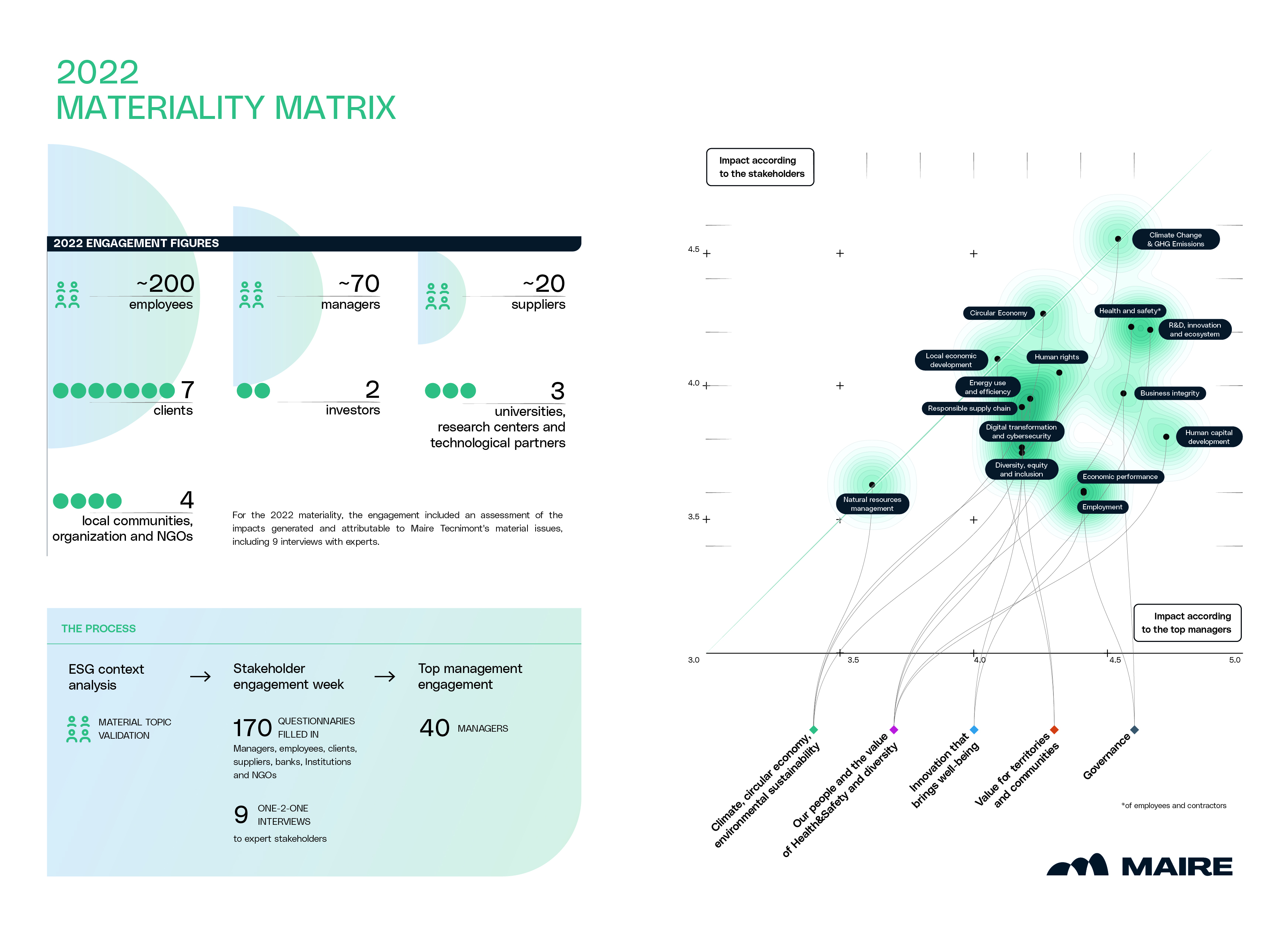STAKEHOLDER ENGAGEMENT
We engage stakeholders in a functional listening process to define the material issues on which to develop our strategy and plan interventions to achieve ESG targets.
MATERIALITY ANALYSIS
In 2022, we updated our approach to stakeholder engagement based on the latest GRI guidelines, setting the materiality analysis on the concept of impact assessment.
We redefined the material issues on which to build the analysis, engaged more than 170 internal and external stakeholders through questionnaires, and conducted 9 in-depth interviews with experienced stakeholders in certain subject areas. A new materiality matrix emerged, with a repositioning of some key themes, such as climate change, and valuable insights that helped us modulate the ESG agenda for 2023.
Materiality Matrix
